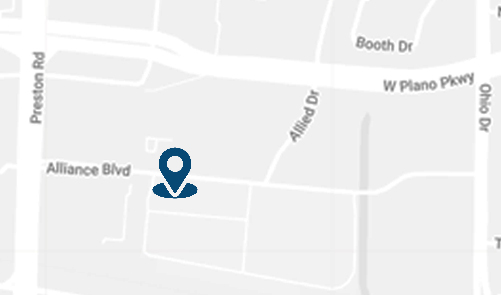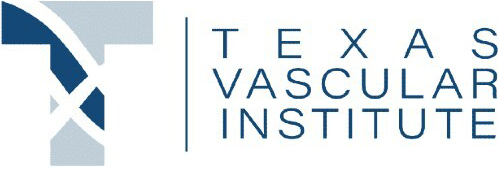By: Dr. Dev Batra | 12.01.24
Highlights
- Exercise regularly to boost nitric oxide and improve vein dilation.
- Stay hydrated to maintain smooth blood flow and support vein health.
- Eat nitric oxide-rich foods like beets, spinach, and citrus fruits for natural vasodilation.
- Use heat therapy with warm baths or heating pads to encourage better circulation.
- Manage stress levels through deep breathing, yoga, or calming music to prevent vein tightening.
Vasodilation is the process where blood vessels widen to improve blood flow, delivering oxygen and nutrients more efficiently throughout your body. It’s a vital function for maintaining healthy circulation, supporting heart health, and easing the strain on your vascular system.
Whether you’re looking for relief from symptoms or aiming to prevent future issues, there are actionable steps you can take to promote healthy vasodilation.
Let’s explore practical tips to help you improve blood flow and maintain optimal vascular health.
1. Exercise Regularly
Regular physical activity (walking, jogging, stretching) is one of the best ways to promote vasodilation and keep your veins healthy.
When you work out, your body increases the production of nitric oxide—a molecule that relaxes and widens blood vessels, letting your blood flow more freely.
Over time, this process can:
- improve circulation
- lower blood pressure
- reduce your risk of vascular-related issues

How Exercise Boosts Vasodilation
Nitric oxide production: Physical activity stimulates the endothelial cells lining your blood vessels to release more nitric oxide, which helps your veins relax and dilate.
Improved blood flow: Exercise reduces vascular stiffness, making it easier for your veins to carry oxygen-rich blood to your organs and muscles.
Strengthened vein walls: Regular movement can help tone the muscles surrounding your veins, offering better support and reducing the likelihood of venous insufficiency.
Examples of Vasodilation-Boosting Workouts
- Walking: A brisk 30-minute walk daily can get your blood flowing and is gentle on your joints.
- Cycling: Choose either a stationary bike or outdoors. Cycling is a low-impact way to encourage vein health.
- Swimming: This full-body workout increases circulation while the water’s buoyancy reduces stress on your legs and veins.
Tips for Beginners
If you’re just starting, it’s important to begin gradually to avoid overexertion. Start with 10-15 minutes of light walking or stretching, then build up your endurance over time. Incorporating small, manageable sessions makes it easier to create a sustainable habit.
Pro Tip: Add movement to your daily routine by taking the stairs, parking farther from your destination, or doing simple stretches while watching TV.
2. Stay Hydrated
When your body is well-hydrated, your blood becomes less viscous (thick), making it easier for your veins to expand and allow smooth blood flow. Staying hydrated can also help prevent strain on your vascular system and reduce the risk of circulation-related issues.
How Hydration Supports Vasodilation
Improved blood flow: Water helps maintain optimal blood volume and viscosity, allowing your veins to dilate effectively.
Nutrient delivery: Staying hydrated ensures that oxygen and nutrients reach your tissues efficiently.
Reduced risk of constriction: Dehydration can narrow blood vessels, increasing strain on your heart and veins.

Daily Water Intake Recommendations
- Aim for 8-10 glasses of water daily (about 2-2.5 liters).
- Increase your water intake during physical activity or in hot weather to compensate for water loss through sweat.
- Incorporate water-rich foods like cucumbers, watermelon, and oranges to supplement your hydration.
What to Avoid
Excessive caffeine: High amounts of caffeine can constrict blood vessels and counteract vasodilation. Stick to moderate consumption (1-2 cups of coffee or tea daily).
Alcohol: Alcohol dehydrates the body and can lead to short-term vasoconstriction, reducing blood flow. If you drink, balance it with plenty of water.
Tips for Staying Hydrated
If drinking plain water feels boring, add fresh fruits like lemon, lime, or berries for natural flavor. Keeping a reusable water bottle handy is also a practical reminder to sip throughout the day.
3. Eat Foods Rich in Nitric Oxide
Nitric oxide relaxes the walls of your blood vessels, improving circulation and allowing blood to flow more easily. Include certain foods into your meals to naturally enhance nitric oxide levels and support vein health.
How Nitric Oxide Works
Relaxes blood vessel walls: Nitric oxide reduces vascular stiffness, allowing veins to expand and carry blood more effectively.
Improves oxygen delivery: Enhanced circulation ensures that your muscles and tissues receive the necessary nutrients and oxygen.

Top Nitric Oxide-Boosting Foods
Beets: Rich in nitrates, beets are converted into nitric oxide in your body, making them one of the best foods for improving vasodilation. Enjoy them roasted, juiced, or in salads.
Spinach: This leafy green is full of nitrates, vitamins, and antioxidants that support blood vessel health. Add it to smoothies, soups, or stir-fries.
Citrus fruits: Oranges, lemons, and grapefruits are high in vitamin C, which enhances nitric oxide absorption and protects your blood vessels from damage.
Garlic: Known for its cardiovascular benefits, garlic increases nitric oxide production and helps reduce blood pressure.
Nitric Oxide Supplements
If you struggle to get enough nitric oxide through food, supplements like L-arginine or L-citrulline may help. These amino acids support your body’s natural nitric oxide production. However, always consult your doctor before starting supplements, especially if you have existing medical conditions or are taking medications.
Pro Tip: Pair nitrate-rich foods with healthy fat (like olive oil) to improve absorption. For example, drizzle olive oil over roasted beets or a spinach salad for a delicious and heart-healthy meal.
4. Use Heat Therapy
Heat therapy is a simple way to promote vasodilation and improve circulation. Warmth encourages blood vessels to expand, making it easier for blood to flow through your veins. This can relieve muscle tension, reduce pain, and enhance overall vascular health.
How Heat Therapy Works
Encourages vasodilation: Heat relaxes the smooth muscle in blood vessel walls, causing them to widen and improve blood flow.
Boosts circulation: Increased warmth enhances oxygen and nutrient delivery to tissues, supporting recovery and reducing stiffness.

Effective Heat Therapy Methods
Warm baths: Soaking in a warm bath relaxes your muscles and improves circulation. Adding Epsom salts can enhance the effect by soothing soreness.
Heating pads: Applying a heating pad to specific areas, such as your legs or lower back, helps target problem spots where blood flow may be restricted.
Warm compresses: A moist towel heated in the microwave can serve as a quick, localized heat source.
Safety Tips for Heat Therapy
Avoid overheating: Excessive heat can damage your skin or exacerbate certain conditions. Keep temperatures comfortable, not scalding.
Set time limits: Limit heat application to 15–20 minutes at a time to prevent burns or irritation.
Special considerations for diabetes: People with diabetes may have reduced sensation in their extremities, increasing the risk of burns. Always use a layer (like a towel) between your skin and the heat source, and monitor the temperature carefully.
Pro Tip: Combine heat therapy with relaxation techniques like deep breathing to amplify the calming and circulation-boosting benefits.
5. Manage Stress Levels
When you’re stressed, your body releases hormones like adrenaline and cortisol, which can cause vasoconstriction—tightening your blood vessels and restricting circulation. That’s why it’s important to manage your stress levels.
Why Stress Management Matters
Reduces vasoconstriction: Chronic stress can keep your blood vessels in a tightened state, increasing blood pressure and straining your veins.
Promotes vasodilation: Relaxation helps your body release nitric oxide and other chemicals that widen blood vessels and improve circulation.

Effective Stress Management Techniques
Deep breathing exercises: Focused breathing can calm your nervous system and reduce tension. Try inhaling deeply for 4 counts, holding for 4 counts, and exhaling for 6 counts. Repeat several times.
Yoga or meditation: These practices combine movement, mindfulness, and relaxation to lower stress levels and encourage healthy circulation. Even 10–15 minutes a day can make a difference.
Listening to calming music: Soft, soothing music can help slow your heart rate, relax your mind, and ease tension in your body. Create a playlist of your favorite calming tracks to unwind during stressful moments.
Pro Tip: Schedule “mini-relaxation breaks” throughout your day. Even a few minutes of mindful breathing or stretching can help reset your stress levels and support vein health.
Key Takeaways
- Regular exercise, hydration, and a nitric oxide-rich diet are essential for vein health.
- Heat therapy and stress management provide immediate and long-term benefits.
- Always consult a vascular specialist for persistent issues.
Worried about Your Vascular Health?
Want to improve your vascular health? The key is to get your blood flowing better. You can do this by making some simple changes to your lifestyle.
However, not all conditions can be managed at home.
If you’re experiencing poor circulation or vein-related issues, schedule an appointment with Texas Vascular Institute today to discuss personalized care options.
Prefer to reach us by phone?
Dallas: 972-798-4641
Fort Worth/Plano: 972-798-4710
FAQs
Q: Can drinking coffee help veins dilate?
A: In small amounts, caffeine may enhance blood flow by stimulating the release of nitric oxide. However, excessive caffeine can lead to vasoconstriction, narrowing blood vessels and potentially restricting circulation. Moderation is key—stick to 1-2 cups a day.
Q: Is there a quick way to dilate veins temporarily?
A: Yes, applying heat (like a warm compress or heating pad) or engaging in light exercise (such as walking or arm circles) can encourage veins to expand and improve blood flow temporarily. These methods are simple and effective for quick results.
Read more blogs
Why Are My Veins Blue?
Wondering why your veins look blue under your skin? Learn the science behind vein color, how light affects what you see, and what it means for your health.
10 Warning Signs Of Poor Circulation And How To Fix It
Have you ever noticed your feet always feel cold, or your legs cramp up when walking? These could be warning signs of poor circulation, a condition that can impact your daily life and overall health.
Leg Pain Keeping You Up at Night?
Are restless, aching legs keeping you from a good night’s sleep? Nighttime leg pain can interfere with your rest, affecting your health, mood, and ability to take on daily activities. While there can be various causes, nighttime leg pain - especially when accompanied by feelings of heaviness, throbbing, or itchiness - could point to a vein issue.
WHAT OUR PATIENTS
have to say
Texas Vascular Institute always appreciates feedback from our valued patients. To date, we’re thrilled to have collected 378 reviews with an average rating of 5 out of 5 stars. Please read what others are saying about Texas Vascular Institute below, and as always, we would love to collect your feedback.
Leave a Review
Amazing Practice
I'm very particular with my Healthcare and tend to be cautious with referrals to specialists. This office is amazing from the first point of contact. Their staff are friendly, professional and highly knowledgeable. Then the Dr is just as amazing as his staff, absolutely brilliant. Office manager Jessica has this office running like a well oiled machine and does so with a smile, an air of confidence, kindness and professionalism. Love this practice!!
- Richard G.

Beyond Thankful
Dr Batra and his staff are amazing! We are so grateful to have found him. Everyone is so kind and so caring and Dr Batra explains everything so well and does procedures with excellence. Beyond thankful to be under their care!!!
- Bitsy P.

Gold Standard
This is a gold standard for how a medical practice should be run. I was promptly seen at my scheduled time, my ultrasound was thorough and I received plenty of attention and care from the staff and Dr.Batra.
- Weronika L.
INSURANCE
We accept most major insurance plans. Please contact the medical office for all insurance related questions.









8330 Meadow Rd #100
Dallas, TX 75231
For Appointments: 972-798-4710
General Inquiries: 972-646-8346

809 West Harwood Rd, Suite 101,
Hurst, TX 76054
For Appointments: 972-798-4710
General Inquiries: 972-646-8346

4716 Alliance Blvd Suite #180,
Plano, TX 75093
For Appointments: 972-798-4710
General Inquiries: 972-646-8346

